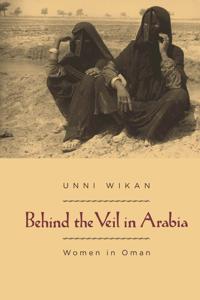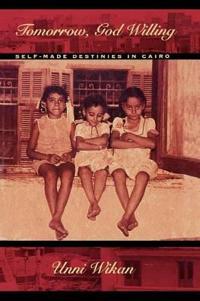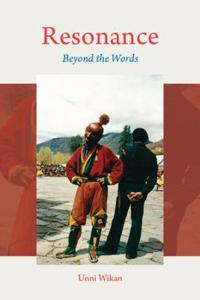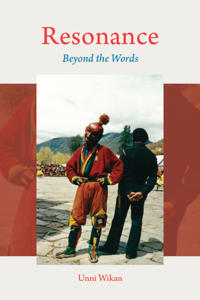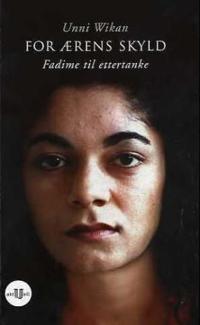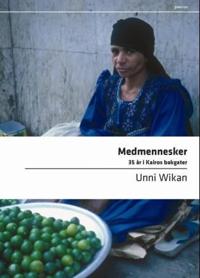Managing Turbulent Hearts (Häftad)
avUnni Wikan
ISBN: 9780226896809 - UTGIVEN: 199012How do Balinese manage to present to the world the clear, bright face, the grace and poise, that they regard as crucial to self-respect and social esteem? How can the anthropologist pass behind the conventions of such a complex culture to recognize what is going on between people, in terms that conv[...]
Behind the Veil in Arabia (Pocket)
avUnni Wikan
ISBN: 9780226896830 - UTGIVEN: 199105Through photographs and detailed case histories, Unni Wikan explores the strict segregation of women, the wearing of the "burqa" mask, the elaborate nuptial rituals, and the graceful quality of Oman's social relations.
"Wikan does provide insights into the real position of these secluded[...]Generous Betrayal (Häftad)
avUnni Wikan
ISBN: 9780226896854 - UTGIVEN: 200204All over Western Europe, the lot of many non-Western immigrants is one of marginalization, discrimination, and increasing segregation. In this book, the author shows how an excessive respect for "their culture" has been part of the problem. Culture has become a new concept of race, sustaining ethnic[...]
In Honor of Fadime (Inbunden)
avUnni Wikan
ISBN: 9780226896861 - UTGIVEN: 200803A heartbreaking story of the murder of young Fadime Sahindal by her own father analyzes similar honor killings around the world and examines the concept of honor in historical and cross-cultural depth.[...]
Tomorrow, God Willing (Häftad)
avUnni Wikan
ISBN: 9780226898353 - UTGIVEN: 199610"I, without earning a penny, have to be the provider!" Thus Umm Ali sums up the nearly impossible challenge of her daily existence. Living in a poor neighbourhood of Cairo, she has raised eight children with almost no help from her husband or the Egyptian government and through hardships from domest[...]
Resonance (Inbunden)
avUnni Wikan
ISBN: 9780226924465 - UTGIVEN: 201302"Resonance" gathers together forty years of anthropological study by a researcher and writer with one of the broadest fieldwork resumes in anthropology: Unni Wikan. In its twelve essays - four of which are brand new - "Resonance" covers encounters with transvestites in Oman, childbirth in Bhutan, po[...]
Resonance (Häftad)
avUnni Wikan
ISBN: 9780226924472 - UTGIVEN: 201302"Resonance" gathers together forty years of anthropological study by a researcher and writer with one of the broadest fieldwork resumes in anthropology: Unni Wikan. In its twelve essays - four of which are brand new - "Resonance" covers encounters with transvestites in Oman, childbirth in Bhutan, po[...]
For ærens skyld; Fadime til ettertanke (Pocket)
avUnni Wikan
ISBN: 9788215007946 - UTGIVEN: 2005Fadime ble drept av sin far i 2002 i Sverige. Hun ble 26 år gammel. Hennes skjebne beveget forfatteren til å skrive denne boka. Hva ligger bak når flere sier at Fadimes far ikke hadde noe valg; det var siste utvei å drepe datteren. Gjennom inngående innsikt i Fadime-saken spesielt, æresbegrepe[...]
Medmennesker; 35 år i Kairos bakgater (Pocket)
avUnni Wikan
ISBN: 9788253028941 - UTGIVEN: 2006Boka går bak stereotypiene og lar deg møte arabere og muslimer i sin fulle kompleksitet som mennesker. Sentralt i skildringen står Umm Ali og hennes miljø. Med åtte barn og uten jobb er hun familiens forsørger. Boka tegner et portrett av denne imponerende kvinnen og gir samtidig et bilde av mi[...]
Om heder (Inbunden)
avUnni Wikan
ISBN: 9789171732958 - UTGIVEN: 200912Heder uppfattas i hederskulturer som ett ting, som något man har eller inte har. Hedern är axeln som livet roterar kring. Och hedern är handfast. Det finns inget tvivel om vilka regler som ger eller berövar heder. Vanheder är hederns bortfall, den totala förlusten av position, anseende, aktnin[...]
En fråga om heder (Häftad)
avUnni Wikan
ISBN: 9789174419467 - UTGIVEN: 201004
Vad kan få en far att döda sitt barn, eller en bror sin syster, för hederns skull? Hur kan en människa drivas så långt att mord känns som enda utvägen? Unni Wikan, norsk professor i socialantropologi, bestämde sig efter mordet på Fadime Sahindal för att undersöka företeelsen[...]


